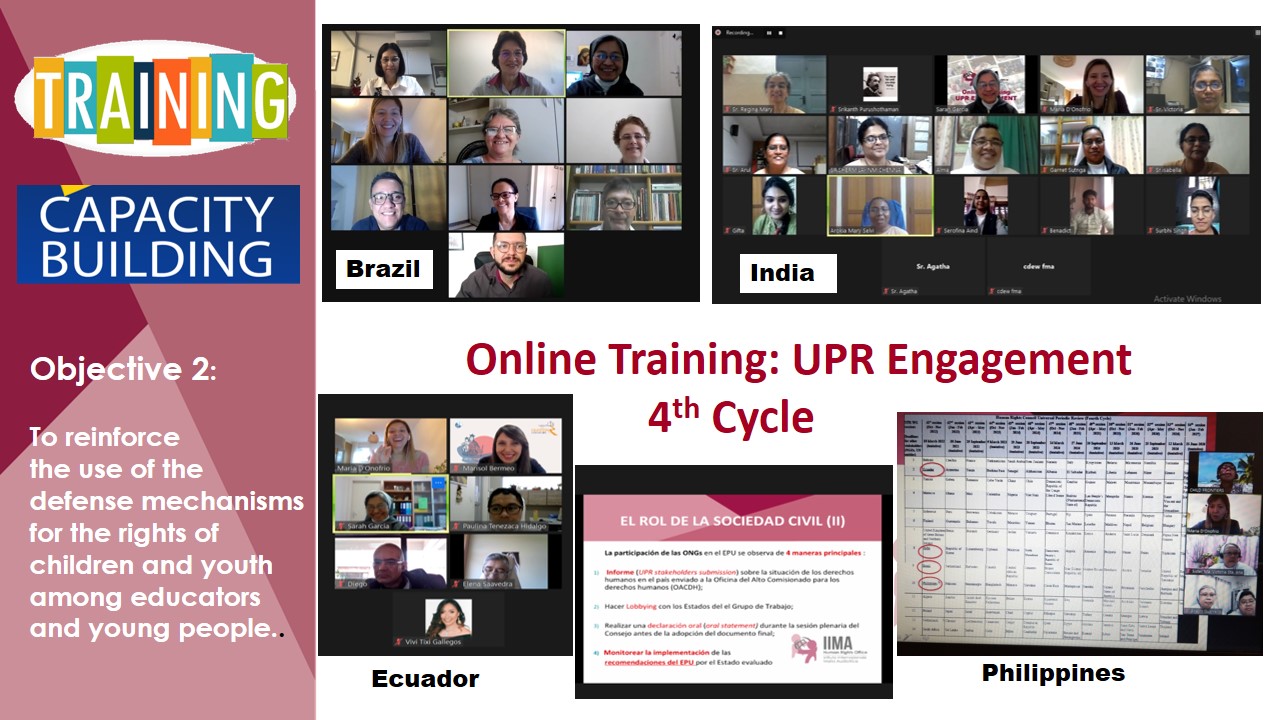
UN Human Rights Day 2021: All Human … All Equal
The COVID-19 pandemic exposed the great inequalities of our times, the poverty, abuses, violations of human rights, as well as the weaknesses of the political, social, economic, civil, and cultural systems at the local, national and international levels.
Equality and inclusion remain an elusive dream and a challenge if we are to build a humanism of justice and peace based on the respect of the human rights of all, irrespective of one’s age, gender, race, nationality, religion, and status.
The Human Rights Day brings to our attention the fact that “all human beings are born free and equal in dignity and rights”, echoing Article 1 of the 1948 Universal Declaration of Human Rights. This year’s theme focuses on equality, that is, “reducing inequalities and advancing human rights”.
Pope Francis, in the Encyclical Letter Fratelli Tutti, emphasized the need for “sustainable equality” (FT161). Awareness that “all things human are our concern…” (FT 278) is key to eliminating inequalities, exclusion, and discrimination. It is in keeping with the UN 2030 Agenda for Sustainable Development goal “to leave no one behind”.
The vision of the IIMA Human Rights Office in Geneva, that is, “a world where all, boys, girls, and young people can realize their full potential to be free and responsible citizens”, highlights the very principles of equality, non-discrimination, and active citizenship. To protect, promote, and fulfill the human rights of all, especially of children, youth, and women, IIMA Human Rights Office started in November 2021 an online training of our local partners on how to fully engage with the Universal periodic Review (UPR).
The UPR is a process which involves a review of the human rights records of all 193 UN Member States. The UPR provides the opportunity for each State to declare what actions they have taken to improve the human rights situations in their countries and to fulfil their human rights obligations.
Under the UPR, any non-governmental organization (NGO) can send a written submission on the human rights situation of any UN Member State. IIMA along with VIDES International is actively engaged in this process. To date IIMA with VIDES were able to send to the Office of the High Commissioner for Human Rights 75 UPR Submission of the Human Rights Situations in some of the countries where IIMA is present. Through its advocacy action the IIMA Human’s Rights Office provides UN experts and Member States representatives with relevant and reliable information on how human rights are being implemented at the local level, including denunciation of violations. The Office carries out this action in close collaboration with local members.
The present UPR Engagement Online Training focuses on Brazil, Ecuador, India, and the Philippines with 42 participants composed of Salesian Sisters, collaborators, youth, and partners, all committed to improving the human rights situations in their respective countries. The training aims to:(i) transmit knowledge about the functioning of the Universal Periodic Review (UPR) and its relevance to the United Nations human rights mechanisms system; (ii) underline the role of Civil Society in dissemination and implementation at the local level of the UPR recommendations, stressing the human rights commitments made by the State in this regard; and (iii) train and sensitize civil society to become active in the promotion and protection of human rights through advocacy actions towards the local, national and international institutions.
Main training contents include an introduction to the UPR mechanisms, insights on how to draft a UPR submission, as well as monitor and follow up on UPR recommendations. Through this capacity building program, IIMA Human Rights Office expects relevant UPR submissions to be drafted in the countries concerned and successfully submitted to the UN. More importantly, the Drafting Process becomes an opportunity for a deep evaluation of the human rights situation among local IIMA members and a systematized process is put in place for continuous involvement of the country concerned in future UPRs.
The commitment of each participant is a sign of hope. Happy Human Rights Day to all!

